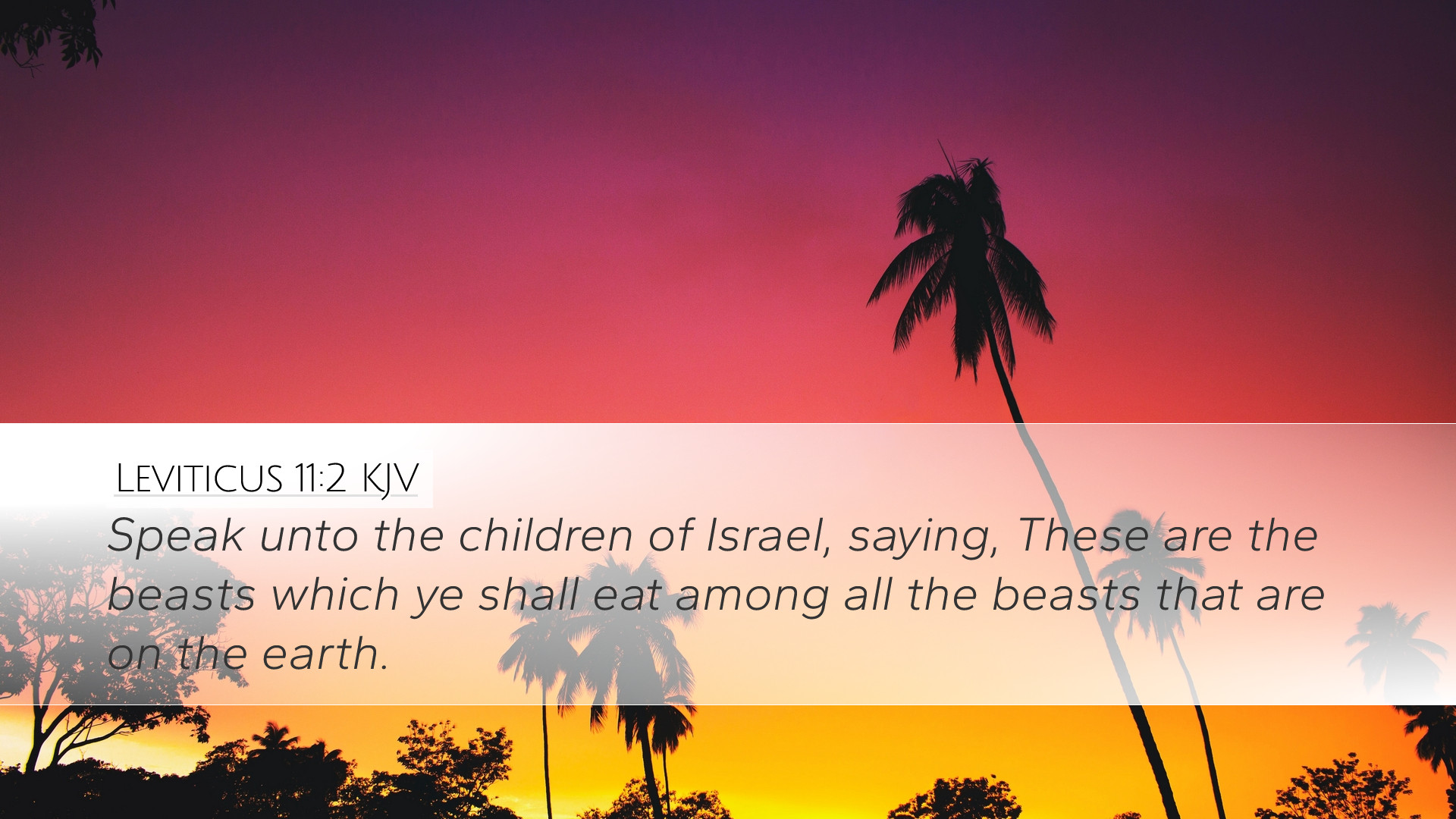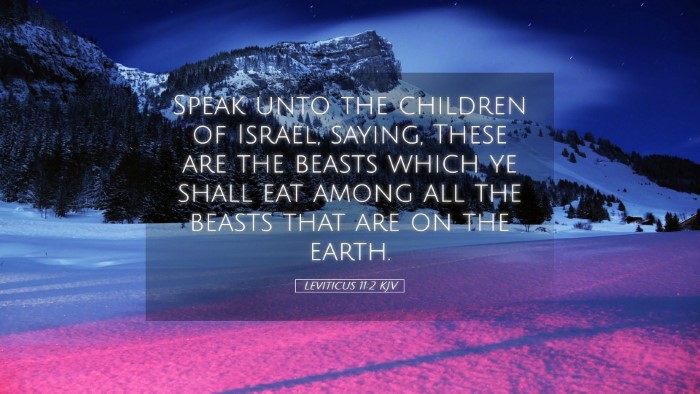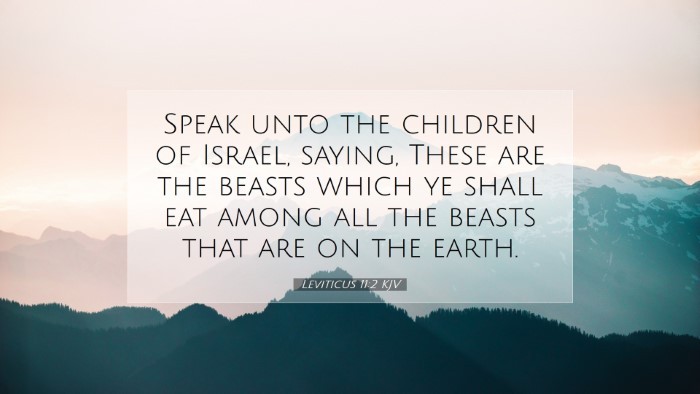Leviticus 11:2 - Biblical Commentary
Verse: “Speak unto the children of Israel, saying, These are the beasts which ye shall eat among all the beasts that are on the earth.”
Introduction
This verse is part of a larger section in Leviticus that outlines the dietary laws given to the Israelites. These laws were crucial for the community identity and religious observance of God’s covenant people. Understanding Leviticus 11:2 requires an examination of its theological, social, and practical implications as interpreted by several renowned commentators.
Theological Significance
In this passage, we see that God Himself dictates the standards for what is clean and unclean. Matthew Henry emphasizes that the distinction between clean and unclean animals reflects broader themes in Scripture regarding holiness and separation from sin. As he notes, these dietary laws serve as a metaphor for moral purity, suggesting that the Israelites are to be distinct from the surrounding nations, upholding a lifestyle that mirrors their covenant relationship with the Lord.
Command and Community Identity
Albert Barnes comments on the authoritative nature of the command given to Moses. The phrase "speak unto the children of Israel" illustrates God's desire for His people to understand the implications of these divine instructions. They are not mere dietary suggestions; they were vital in establishing a unique identity for the Israelites as they were called to be a holy nation (Exodus 19:6). The dietary laws enforced communal practices that would remind the Israelites of their relationship with God.
Practical Applications
Adam Clarke provides an insightful discussion about the practical implications of the laws outlined in Leviticus 11. He argues that these restrictions also provide health guidelines which would have benefited the Israelites, keeping them from certain diseases that could arise from consuming unclean animals. Clarke mentions that the principles of clean and unclean can be related to spiritual discernment in Christians today, encouraging believers to avoid moral and spiritual impurities in their lives.
Spiritual Insights
- Separation from Sin: The distinctions in clean and unclean statuses echo the spiritual call to separate from sin (2 Corinthians 6:17). Just as the Israelites were to avoid unclean animals, Christians are called to abstain from practices that would defile their relationship with God.
- Holiness as Witness: The dietary restrictions served to set Israel apart as a witness to nations. This idea is expanded by many commentators who see the New Testament fulfillment of this in the call for believers to manifest holiness in a world often at odds with biblical standards.
- God's Provision: The specification of clean beasts underscores God's provision and guidance. The Israelites were to recognize that their sustenance was under divine authority, fostering both dependency and gratefulness for God's direction in their lives.
Cultural Context
The cultural background of Leviticus helps to frame the understanding of these dietary laws. At the time, many surrounding nations practiced various forms of animal sacrifices, often involving animals that were considered unclean by Hebrew standards. Henry notes how these laws differentiated the Israelites from their pagan neighbors and served to enhance their communal and religious identity.
Ethical Considerations
In today’s context, the understanding of Leviticus 11:2 extends into conversations about ethics and stewardship of God's creation. Barnes points out that the recognition of clean and unclean reflects a larger ethical framework within the Old Testament that can carry over to discussions about how Christians today engage with food, health, and responsible consumption.
Conclusion
Leviticus 11:2 may seem a simple dietary command at first glance, yet its implications ripple throughout the Biblical narrative, shaping Israel’s understanding of holiness, identity, and community. As Matthew Henry notes, the laws expounded in this chapter are not merely primitive dietary restrictions; they hold deep spiritual significance that invites believers of every generation to reflect on their own spiritual practices and identity in relation to God. Engaging with this text encourages pastors, students, and scholars to explore the continuity of theological principles at work in both the Old and New Testaments.


